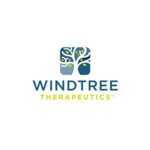 Windtree Therapeutics (NSDQ:WINT) today released data from a phase IIa trial evaluating its inhaled Aerosurf lucinactant designed for premature infants with respiratory distress syndrome.
Windtree Therapeutics (NSDQ:WINT) today released data from a phase IIa trial evaluating its inhaled Aerosurf lucinactant designed for premature infants with respiratory distress syndrome.
Results from the trial were presented at the 6th International Congress of European Neonatal and Perinatal Societies in Valencia, Spain.
Premature babies often lack adequate surfactant – a naturally occurring substance that reduces the surface tension of fluids in the lungs and helps to enable stable breathing. To make up for an insufficient supply of surfactant, doctors use lucinactant replacement therapy in a liquid formulation immediately after birth in order to help the child breathe.
Warrington, Penn.-based Windtree hopes that its inhaled lucinactant formula can reduce or eliminate the need for endotracheal intubation and mechanical ventilation in infants with respiratory distress syndrome.
Data from the phase IIa study show that Aerosurf, when administered via nasal continuous positive airway pressure (nCPAP) in infants from 29 to 34 weeks gestation with respiratory distress syndrome was safe and well tolerated. Initial data also show that the treatment may be lessening the need for invasive intubation.
“We are very pleased with the safety and tolerability seen with Aerosurf in the phase II program thus far and are encouraged by the reduction of nCPAP failures seen when using Aerosurf in preterm neonates 29-34 weeks [gestation],” senior VP & chief development officer Dr. Steve Simonson said in prepared remarks. “Though further study is required, if we are successful, we believe Aerosurf will represent a transformational change in the management of RDS.”

